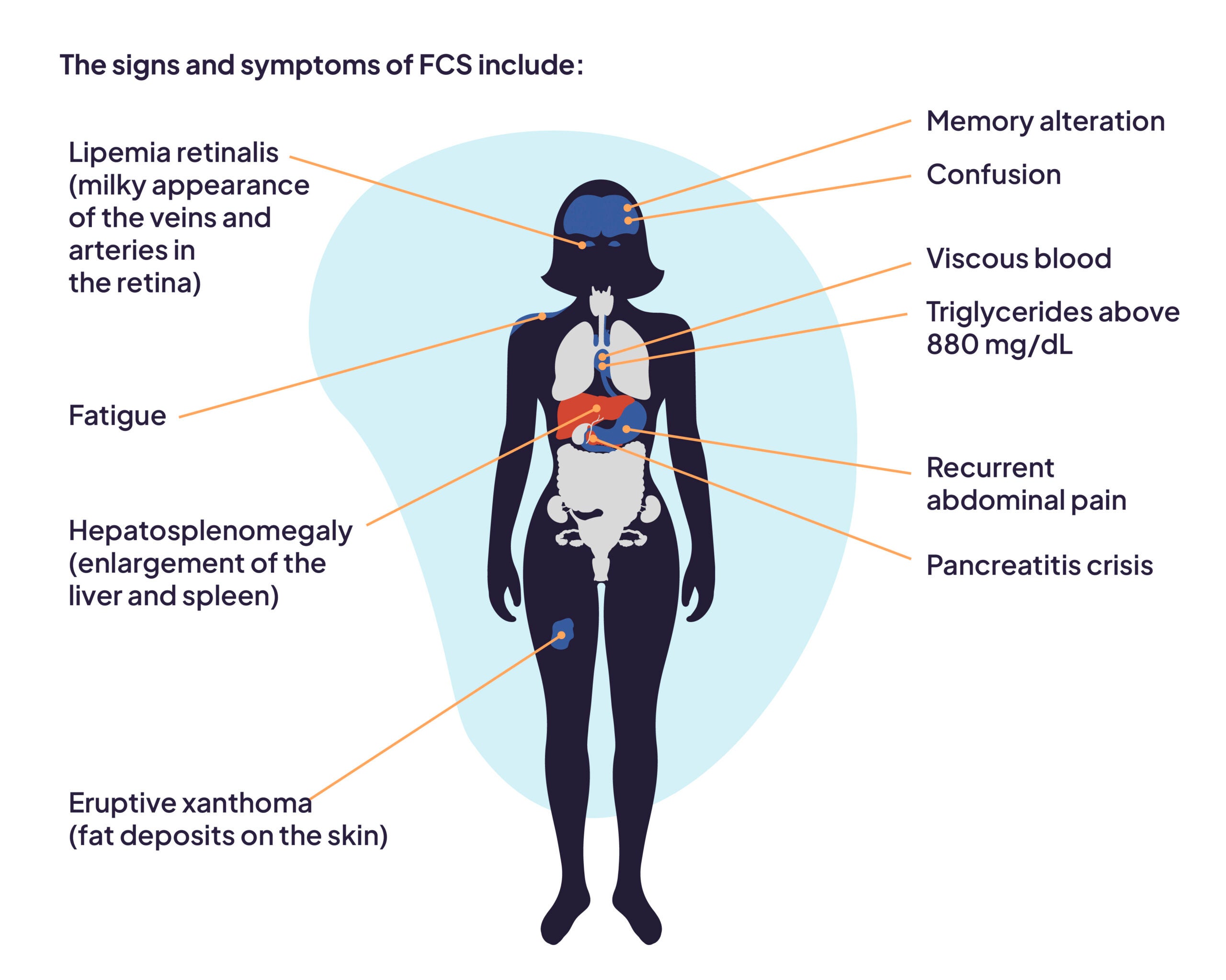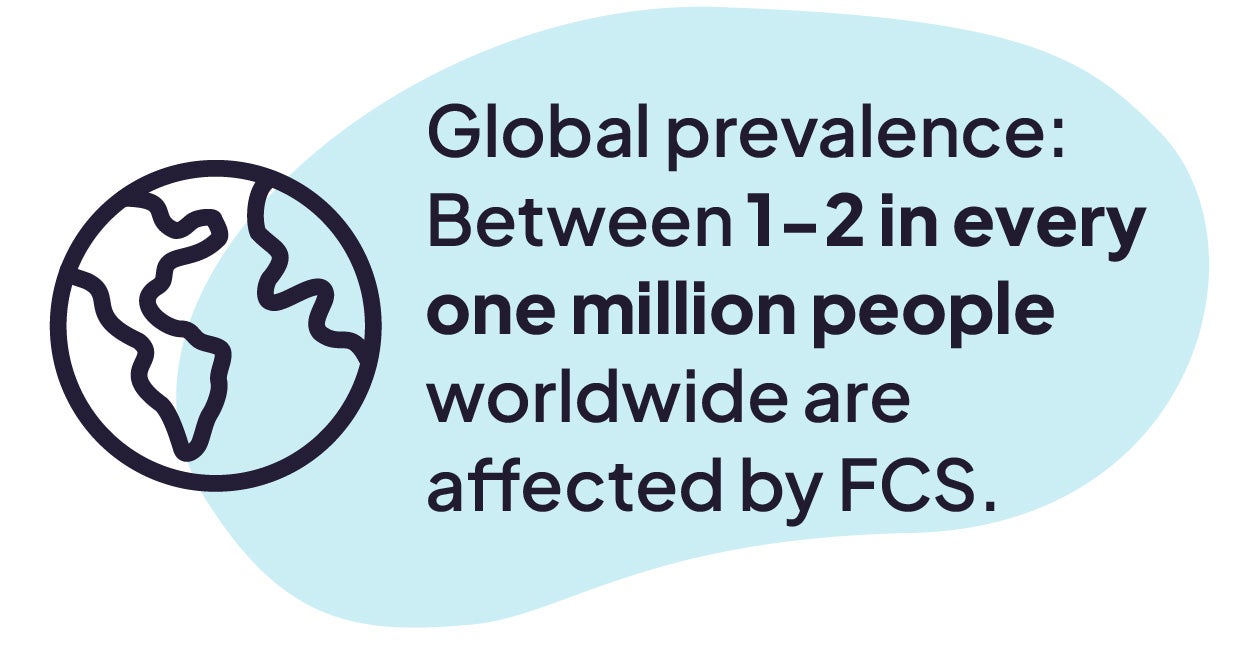Familial Chylomicronemia Syndrome (FCS)

What is Familial Chylomicronemia Syndrome?
Familial Chylomicronemia Syndrome (FCS) is a rare genetic and hereditary disease that prevents the body from digesting fats (triglycerides)1, leaving the patient debilitated and, depending on the severity, leading to death. FCS can manifest at various points in life, from childhood to adulthood.
The signs and symptoms of FCS include2:
- Hepatosplenomegaly (enlargement of the liver and spleen)
- Viscous blood
- Triglycerides above 880 mg/dL
- Recurrent abdominal pain
- Pancreatitis crisis
- Memory alteration
- Confusion
- Fatigue
- Eruptive xanthoma (fat deposits on the skin)
- Lipemia retinalis (milky appearance of the veins and arteries in the retina)
How Common is Familial Chylomicronemia Syndrome?
It is estimated that between one and two in every 1 million people worldwide are affected by FCS2.

How is PTC Working to Treat Familial Chylomicronemia Syndrome?
PTC has in-licensed the rights to market a therapy from Ionis Pharmaceuticals in Latin America to treat FCS.
[1] Williams L, Rhodes KS, Karmally W, et al. Familial chylomicronemia syndrome: Bringing to life dietary recommendations throughout the life span. J Clin Lipidol. 2018;12(4):908–919.
[2] Falko JM. Familial chylomicronemia syndrome: a clinical guide for endocrinologists. Endocr Pract. 2018;24(8):756–763.)
Do you have questions?
Please reach out if you would like to speak with us.